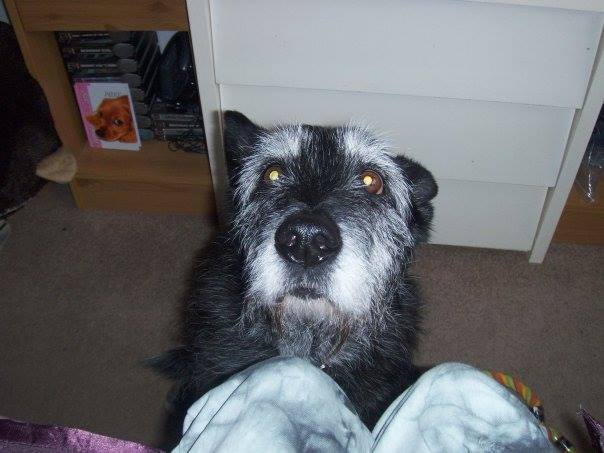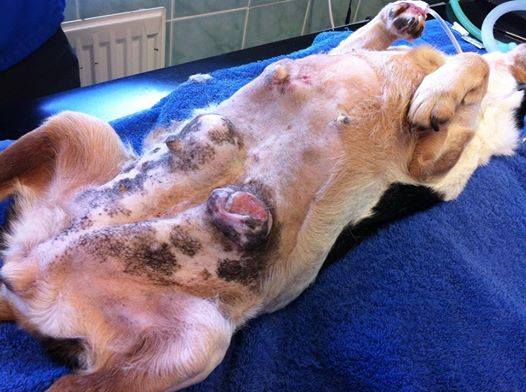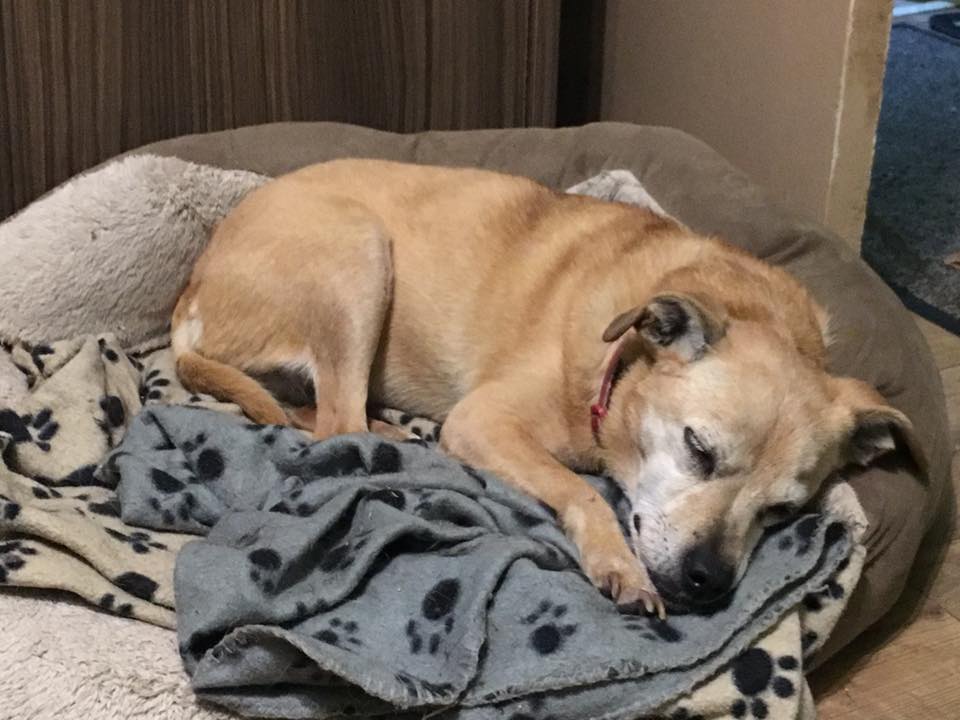As your dog ages, their behaviour and health can change, but not only this, the way you care for them needs to be modified too to help them feel as comfortable as possible. Although it is sad to see our best friends get older, there are lots of medications that can help, so don’t get too upset. It’s a good idea to take your senior dog to see the vet regularly as the sooner illness are noticed, the easier they are to treat. Your vet will also be able to offer advice on any problems your pet may be facing.
The process of ageing
Just like humans, dogs change as they get older. They may sleep more and become less active, which means they can put on weight as they are not moving around as much to burn those calories. On the other hand, some dogs may lose weight, and if you notice any weight gain or loss, it’s best to get your vet to give your dog a checkup.
You will also notice a change in their coat, which can appear duller, and many dogs will get grey hairs. Some dogs will have memory loss or become slower at understanding commands and their eyesight and hearing will deteriorate. The immune system will become less efficient, and your dog will be more prone to illness as their body is less able to fight off infections.
As a pet owner, it is your duty to look out for any changes in them and take them to the vet to find out more. Changes in mood can indicate health issues, so it’s really important to note any changes. Some common health problems in older dogs are;
Arthritis
Arthritis is a disease that causes inflammation and stiffness of the joints and is very painful. Between joints are cartilage, which acts as a buffer to protect the bones from damage. If this cartilage is damaged, it can cause inflammation. Arthritis causes stiffness, swelling and pain and symptoms include difficulty getting up, standing and walking, as well as reluctance to move, limping and showing signs of pain when being picked up or touched. They can become irritated or aggressive, and some will lick the area which is causing the pain. It’s really common in old animals, but can be managed with medication.

Incontinence
Perhaps the reason many of these old animals are thrown out is because they lose control of their bladders or bowels. Although not pleasant, it can be managed. Some dogs may forget their house training as they age, whilst it’s common for female dogs to wet themselves as the neck of the bladder deteriorates, which means it doesn’t close fully and there can be leakages. There are medications that can help by thickening the neck of the bladder, so talk to your vet about this.
You can also get absorbant pants for female dogs and belly bands for incontinant males. If your pet starts to have accidents, take them to the vet for a check up first and ask them if your pet is a suitable candiadate for pants. If they are, make sure you change the pants regularly, and give your pet some time without wearing them to allow the air to circulate round the skin.
Senility
Most the elderly animals I have had have had this to some degree. Some have had it fairly extremely, whilst others have had a touch of it now and again. Because veterinary medicine has advanced so much, dogs are living longer which is why we see senility in dogs more and more. Memory loss is common as they age, just like in humans and they can get confused from time to time. Some dogs will have more advanced senility than others, and again, there are medications which can help, so it’s always worth talking to your vet to see what options you have.
Cancer
Cancer can affect any dog and in entire animals, the risk is greater. Mammary tumours are common in unspayed bitches, and although they can be removed, they can also spread and affect other organs within the body. Prostate cancer is common in entire male dogs, and unfortunately is highly likely to spread to other organs. Getting your dog neutered as soon as they are old enough will prevent the risk of these cancers.

Pyometra
A pyometra is an infection of the womb and although it can happen to an unspayed bitch at any time, it is common in older dogs. The reason it is more common in older dogs is because when she has a season, she undergoes hormonal changes and the change within the uterus each season, makes infection more likely with age. If your dog has a pyometra, she will need an emergency spay which is higher risk than a routine spay, which is why it is so important to have your dog spayed as soon as they are old enough.
Gum disease
I cannot recall an elderly animal that has come to me with good teeth, and all of them have had some degree of gingivitis (gum inflammation) or periodontitis (gum disease). This occurs when bacteria in the mouth turns into plaque on the teeth and causes the gums to become inflamed. Gingervitus can advance to periodontitis which is when the gums pull away from the teeth. This can create pockets which are at high risk of becoming infected. Gum disease is serious as the infection can spread via the bloodstream and cause damage to organs within the body. If possible, it’s best to prevent this, and you can brush your dogs teeth, as well as giving them dental toys which help remove plaque as they chew. You could also try edible chews, such as greenies which help remove plaque and tartar buildup.

Keep in mind that this list doesn’t include everything that could affect your dog, so as they age, make sure you monitor them and take them to the vet if you have any concerns. Although sad, it is inevitable, so cherish every moment you have together. No-one likes to think about losing their pet, but I have written another blog on coping with losing a beloved pet so you can be prepared for when the time comes. I hope you and your dog have many more happy years together.
I love elderly animals. Read about some of my oldies here, and if you have an older pet, tell me about them in the comments below!

